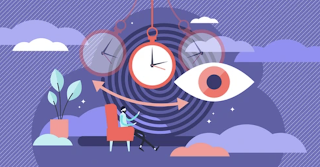Week Five: Research Proposal Final Draft
Are deja vu experiences potentially connected to the theory of synchronicity? Working Title: Synchronizing the Conscious Mind and False Recollection Events Topic: The goal of my research paper is to investigate the parallels between Carl Jung’s theory of synchronicity and the deja vu phenomenon. By conducting research about both subjects through a specific lens, I will use synchronicity as a lens through which to examine some people's experiences of "deja vu" as a "meaningful coincidence.” Research Question: Are people more prone to experiencing deja vu experiences if they are consciously aware of these occurrences, just as Jung theorizes people become more prone to synchronicities once they initially recognize them? Theoretical Frame: Carl Jung’s informative text Synchronicity: An Acausal Connecting Principle is my primary foundation for building my own synthesis between deja vu and synchronicity. The specific chapter that I will be implementing into my o
